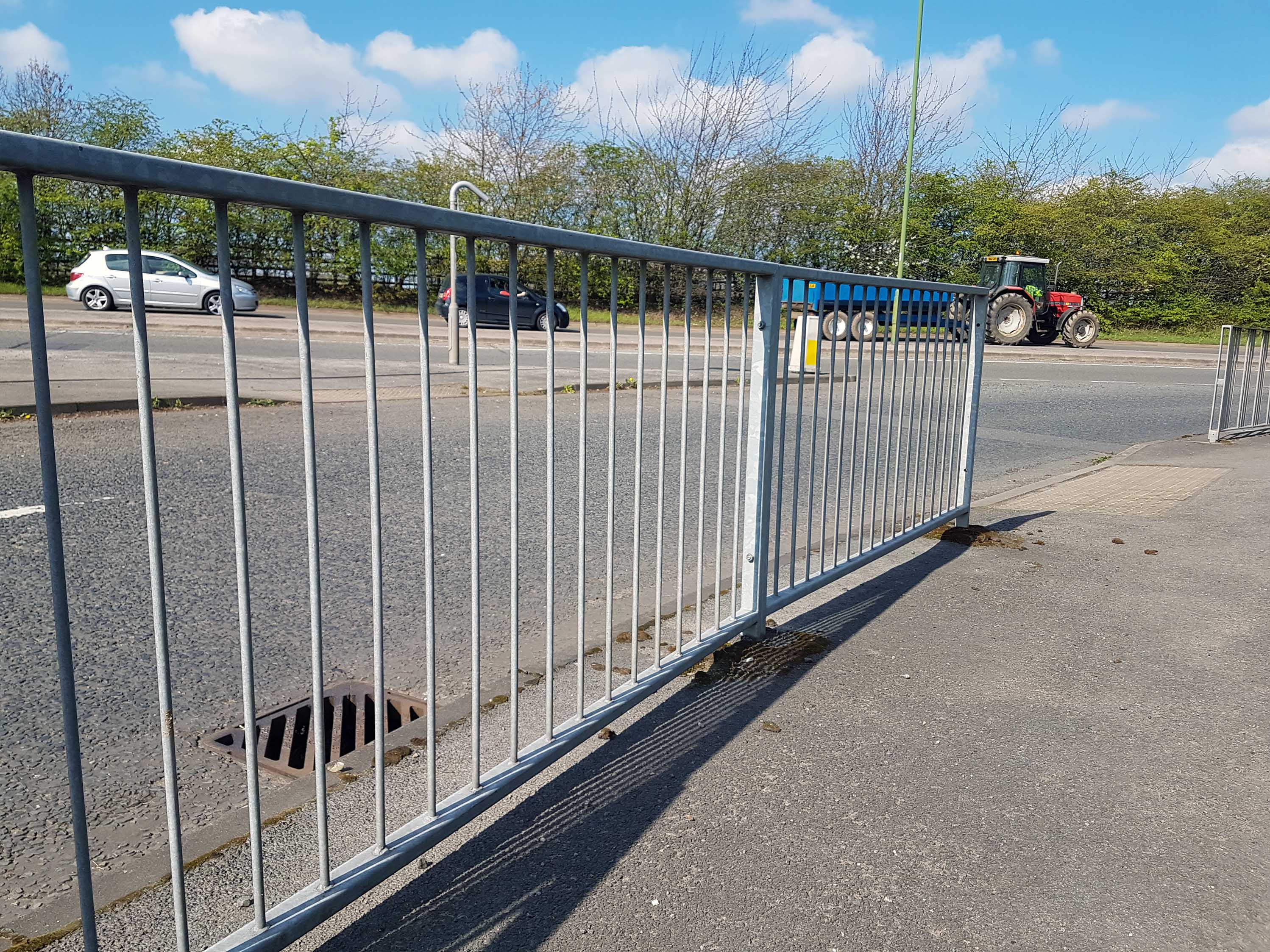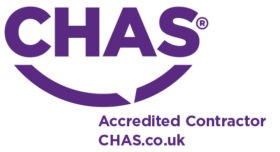Corrosion is a metal worker’s worst enemy, compromising the stability of the metal and making it look worn over time.
So, we must take steps to prevent corrosion to keep railings sturdy and looking great for a long-lasting solution.
One way to do this, is through the process of galvanisation.
Galvanisation was pioneered in the early 1800s when scientists discovered that submerging two electrically connected metals in water led to the protection of the base metal.
This was then developed with iron and zinc which revolutionised how metal was used in industrial design, and a similar process is still used today.

What is Galvanisation?
Galvanisation is a method of protecting iron or steel structures, like steel railings, from corrosion by coating it in molten zinc.
This creates a barrier between the railing and the external environment, meaning corrosion happens much slower. The outer zinc layer takes the brunt of the environmental damage, so the metal underneath is left unharmed.
The most common type of galvanising is hot dip galvanising where the railing, or other steel structure, is dipped into molten zinc to trigger a metallurgical reaction.
What Are its Benefits?
Corrosion Protection
The main benefit of galvanising steel railings is to protect it from corrosion. Corrosion occurs naturally in metals as they are exposed to the elements. Over time this can compromise the structural integrity of the metal and can be very dangerous.
Galvanising uses sacrificial protection to slow down the effects corrosion and give railings longevity. Instead of the steel structure being corroded by the elements, the zinc layer is affected instead – hence why it’s called sacrificial protection, as the zinc is sacrificed for the steel.
Prevents Rust
Not only does corrosion affect the structural integrity of railings, it causes rust that looks bad and can leave a residue on those who touch it.
Rust occurs when iron is exposed to oxygen and accelerated by the presence of moisture – two things that are prevalent in our atmosphere. By coating the iron or steel in zinc, the oxygen cannot react with it as easily and rust is avoided.
Simple Process
While there are many ways to avoid corrosion for iron-based fabrications, galvanisation is a cheap and simple process, making it cost effective for both the manufacturer and the customer.
The Process of Galvanisation
Chemical Cleaning
The first step in the process of galvanising steel railings is to clean the metal, as contamination could interfere with the metallurgical reaction. Any residual welding slag, paint or heavy grease is removed by the manufacturer before the galvanising process begins.
The railing is dipped in an acidic or alkaline solution to remove any grease and rinsed to prevent contaminating the rest of the process.
Then the railing is dipped into room temperature hydrochloric acid to remove any rust and mill scale.
Fluxing
Finally, the railing is plunged into 30% zinc ammonium chloride at around 65-80°C. This removes the last traces of oxides from the surface of the railing and allows the steel to be wet by the zinc.
Galvanising
Once the railing has been cleaned, it’s time to begin galvanising.
The structure is submerged into a bath of molten zinc at around 450°C. This causes the metallurgical reaction between the iron and the zinc to create layers of zinc iron alloy and a coating of zinc.
The layers begin to form almost immediately, with most galvanising only taking around 5 minutes, although this can be longer if the railing is very large or awkwardly shaped.
When the railing is removed from the bath of molten zinc, it has a shiny appearance. The railing is then visually inspected to ensure the layers are evenly distributed and to remove imperfections before the zinc solidifies.

Freshly galvanised pedestrian guardrail vs zinc patina
Post Treatment
The railing is then cooled. This is done by submerging it into cool water or it can be left to air at room temperature.
Once the outer layer has cooled completely, the railing is ready to use. If required, painting or powder coating occurs at this stage.
Why Should I Get it Done?
Now you understand what galvanising is and how it’s done, you may be wondering why you should choose to galvanise your railings.
We recommend galvanising for the following reasons:
- Long-Lasting Protection – Galvanisation makes your railings last much longer as they are protected from the elements. Typically, galvanised railings last in excess of 20 years in urban areas and even longer in rural areas.
- Cost-Effective – The simple process of galvanisation makes it much cheaper than alternatives. Also, the treatment results in less maintenance over time. For these reasons, galvanising is one of the most cost-effective corrosion protection methods.
- Environmentally Friendly – Galvanising is one of the most environmentally friendly ways to prevent corrosion.
Galvanised Railings from Alpha Rail
If you’re interested in galvanised railings, our team are happy to help you.
At Alpha Rail, we have almost 40 years of experience in metal fabrication, so we can advise on the right railings for your needs and what steps you need to take in order to make them last.
We can supply you with galvanised products for your project such as galvanised hand rails and galvanised guardrails. Make sure that your project looks like new as long as possible. Our galvanised products will last long as the special coating prevents them from corrosion and various weather conditions.
Alpha Rail’s galvanised hand rails and guardrail provide durable and long-lasting solutions for safety.
We are trusted by hundreds of customers across Great Britain to deliver long-lasting railings that look good and fulfil need.
If you’d like to hear more about our range of galvanised railings and galvanised hand rails, please get in touch.










